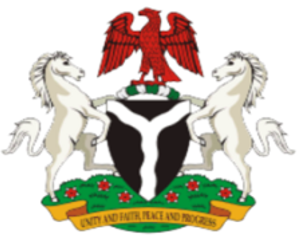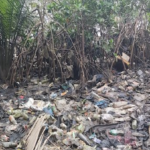The Hydrocarbon Pollution Remediation Project (HYPREP) is a project of the Federal Government of Nigeria under the supervision of the Federal Ministry of Environment. It was established by the Federal Government Gazette Number 176, Volume 103, of 2016. It was setup to implement the report on the Environmental Assessment of Ogoniland by the United Nations Environment Programme (UNEP), as well as undertake assessment and remediation of other hydrocarbon contaminated areas in the Niger Delta region and other parts of Nigeria. The Gazette setting up HYPREP stipulates in section 22 (h), that HYPREP must comply with the Procurement Act of 2007 of the Federal Government of Nigeria. However a number of misgivings, accusations and disinformation had trailed the procurement process in HYPREP and it is therefore expedient that the general public is clearly informed about the procurement processes in HYPREP.
The processes for procurement of works, goods and services are clearly stated in the Act and Standard Bidding Documents. It requires that the problem to be solved be clearly defined in form of work scope. In the case of HYPREP, the work scope is based on the fact sheets of UNEP report and further delineation undertaken by the Project Coordination Office (PCO). Sites assessed by UNEP were all georeferenced and areas at which hydrocarbon contamination was found were indicated as requiring remediation. The maps produced by UNEP indicated the areal extent and depth of contamination, as well as the concentration or level of Total Petroluem Hydrocarbon (TPH) compounds in the soil and groundwater. For HYPREP to develop the scope for contracting, the UNEP assessed sites are further sampled and analyzed to delineate or determine the current level of contamination laterally and vertically at each of the sites.
The accepted remediation technique is the bioremediation process, which basically involves biodegradation of hydrocarbon compound in the contaminated soil and groundwater, through the deployment of suitable techniques such as tilling by land farming, and addition of microbial nutrient amendment to stimulate microbial activities for biodegradation. Bioremediation could be undertaken either in-situ or ex-situ (treatment on site or off site respectively). However, during the procurement process contractors are generally given the option to propose their own alternative remediation methodology.
The Procurement Act requires that suitable contractors should be identified through open competitive bidding by placing advertisement in the Federal Tender Journal, National Dailies and an International Journal. All necessary requirements are stated in the advertorial including registration with Corporate Affairs Commission (CAC), regulatory bodies, such as the National Oil Spill Detection and Response Agency (NOSDRA), Bureau for Public Procurement (BPP), and payment of taxes as well as and possession of necessary insurance policies, in addition to having relevant equipment and working experience. For remediation works, relevant working experience including skills in civil works that are relevant to excavation and tilling of soil, knowledge of appropriate nutrient amendment, and bioremediation quality assurance and quality control processes. The advertorial also has provision for technical or Joint Venture partnership with a competent contractor in Nigeria or abroad.
When such prequalification bids are received in HYPREP office, a technical evaluation team is set-up by the Project Coordination Office to evaluate them. The team is chaired by the Head of Procurement of HYPREP, and members include, relevant technical staff, the user Unit, Legal Unit, Account Unit, and the Monitoring and Evaluation Unit. Other bodies invited as observers are representatives of UNEP, Shell Petroleum Development Company (SPDC) and the Federal Ministry of Environment. The scoring matrix is jointly required and adopted before the evaluation process. It is clear from above that no individual can single handedly determine which contractor is eligible to be pre-qualified.
The pre-qualification report is compiled by the Procurement Unit and signed off by the members and then submitted to the Project Coordinator of HYPREP for consideration and approval and then transmitted to the Honourable Minister of Environment for further consideration and approval. When approval is obtained, invitation for financial bidding is sent to the prequalified contractors.
The evaluation of the financial bid is undertaken by the same evaluation committee of HYPREP PCO. The report is compiled by the Procurement Unit and signed off by the members and then submitted to the Project Coordinator of HYPREP for review and thereafter transmitted to the Honourable Minister of Environment for further consideration and approval. The financial evaluation report and all relevant tender documents are processed to the Bureau of Public Procurement (BPP) or Ministerial Tenders Board (MTB), depending on the value of the contract. The BPP will then review the report with input from their technical and commercial experts and issue the requisite Due Process and “No Objection for the Award”. If a no objection certificate is obtained, the contracts are presented to the Federal Executive Council (FEC) for final consideration and approval.
From the above, it is clear that no single individual can process and award a contract to any contractor without going through the due process. The checks and balances in the process are robust enough to ensure transparency. All contracts of HYPREP have followed and complied with the above procedure.











